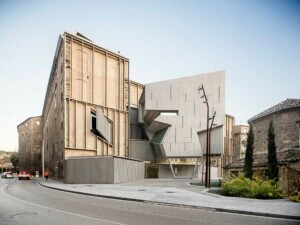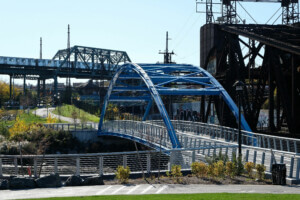A collaborative design team that will shepherd the transformation of a 110-acre section of the former Marine Corps Air Station El Toro in Irvine, California, into a multifaceted cultural complex has formally been selected. As announced yesterday, Toronto-headquartered global design services firm IBI Group will lead the team and be joined by Rotterdam’s MVRDV (no stranger to breathing new life into erstwhile military installations) along with a duo of Los Angeles-based practices: woman-owned architecture and design studio MAAM and landscape architecture and urban design studio Agency Artifact. Rounding out the larger team in consulting partner roles is Buro Happold, Langan Engineering, and construction consultancy firm Rider Levett Bucknall.
Dubbed the Cultural Terrace, the project is set to be a major new element of Irvine’s sprawling (and oft-embattled) Great Park and will involve the adaptive reuse of a pair of 140,000-square-foot hangars still standing at the nearly 5,000-acre decommissioned military airfield in Orange County. (Before its closure in 1999, the facility served as home to the Marine Corps’ West Coast aviation operations.) Joining the two reimagined hangars is a 40,000-square-foot warehouse and a wide swath of disused land that with be converted into open public space and serve as connective tissue between the trio of hulking military structures.
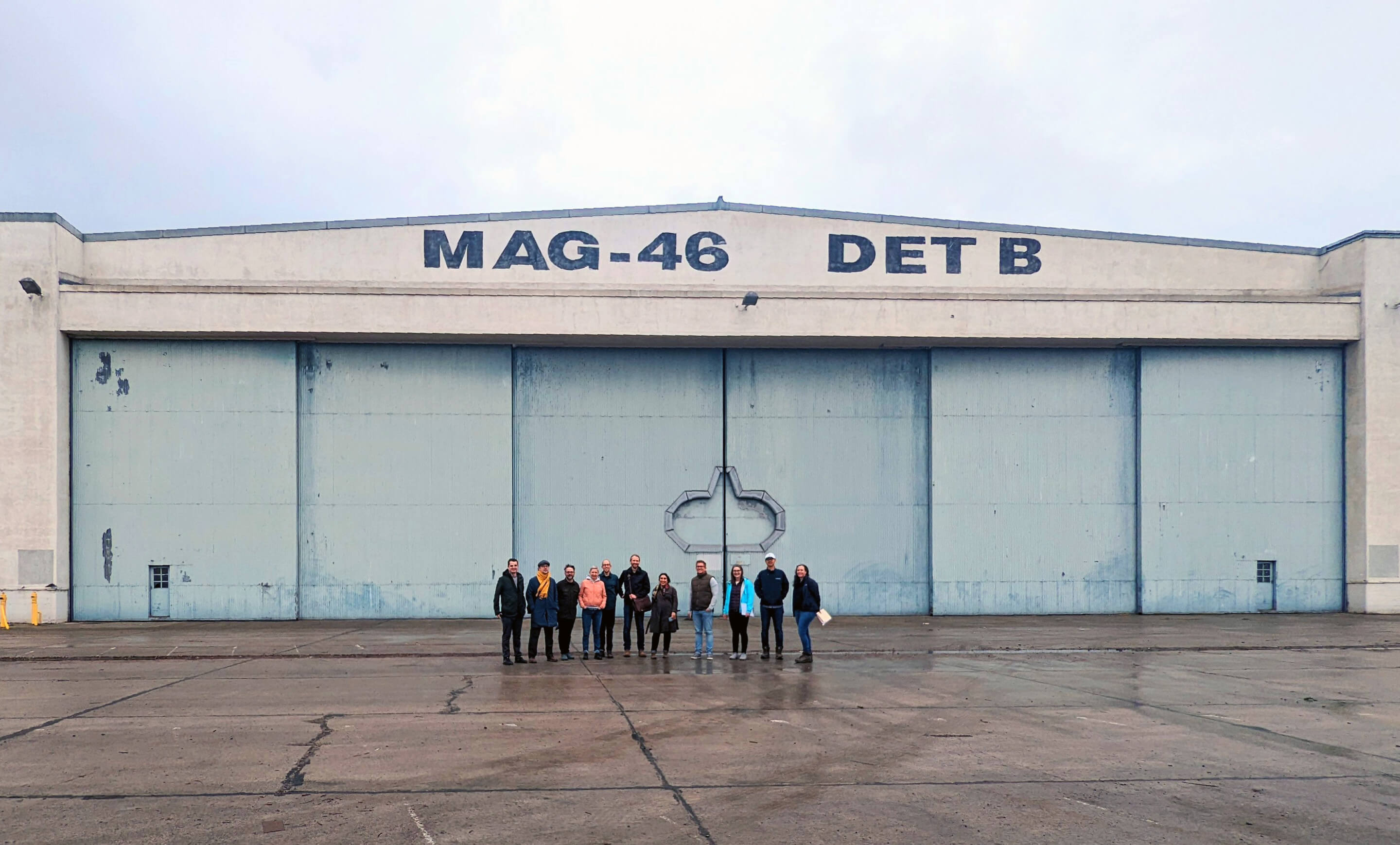
The exact programmatic function of the Cultural Terrace, which will span 236 acres in the southeastern section of Great Park, has yet to be ironed out although yesterday’s announcement detailed that proposed uses include a museum complex, library, community center, event space, and city offices. The design team also believes that the City of Irvine could partner with “local innovators and thought leaders” to hash out a diverse roster of programs and workshops that would be held within the restored hangars.
“By tapping into that talent, we can expand the definition of a cultural center for the 21st century,” said Yancey Clayton, an L.A.-based architect with IBI Group who will oversee the larger team.
As reported by the Daily Pilot earlier this month, there’s been a strong push from a group of community and tribal members for the Cultural Terrace to include a cultural and natural history museum that tells the story of, and that would house, ancestral artifacts belonging to the original people of Orange County, the Juaneño Band of Mission Indians. However, the City of Irvine has not committed to any specifics yet as the city council is reviewing community feedback of the Great Park master plan. The input-seeking public engagement effort now under review kicked-off last September and lasted two months.
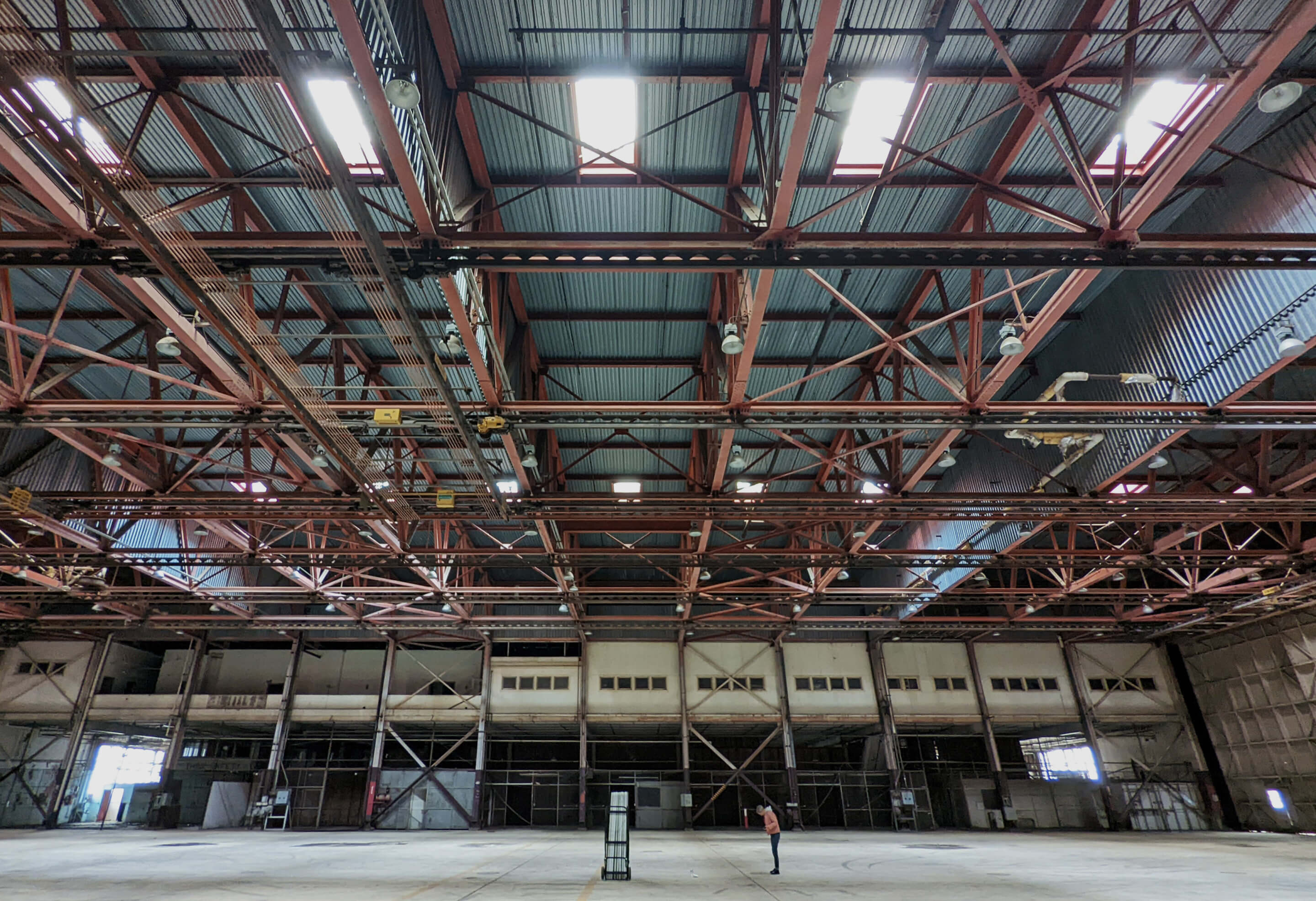
Yesterday’s press announcement also noted that the newly assembled Cultural Terrace design team will hold a series of workshops “to develop a program based on the needs of the community.”
“This site has an important history in Orange County and now is ready to be transformed into a dynamic public space for Irvine in the 21st century,” said Chris Torres, founding principal of Agency Artifact in a statement.
For some members of the design team, the former airbase also holds familial significance. “My grandfather was stationed at El Toro during Vietnam, so I have an appreciation for the legacy of this site,” said MAAM cofounder Meredith McDaniel. “Now, as designers, we are asking ‘How can we apply the ingenuity and aspirations of those engineers and aviators who worked on this base towards a whole new set of cultural opportunities?’”
As plans for the Cultural Terrace at Great Park begin to take form, it’s worth noting that Irvine’s ambitious military air station-to-public space reuse project has experienced considerable turbulence since taking off in 2007 and has been mired by funding woes, political controversy and legal squabbles.
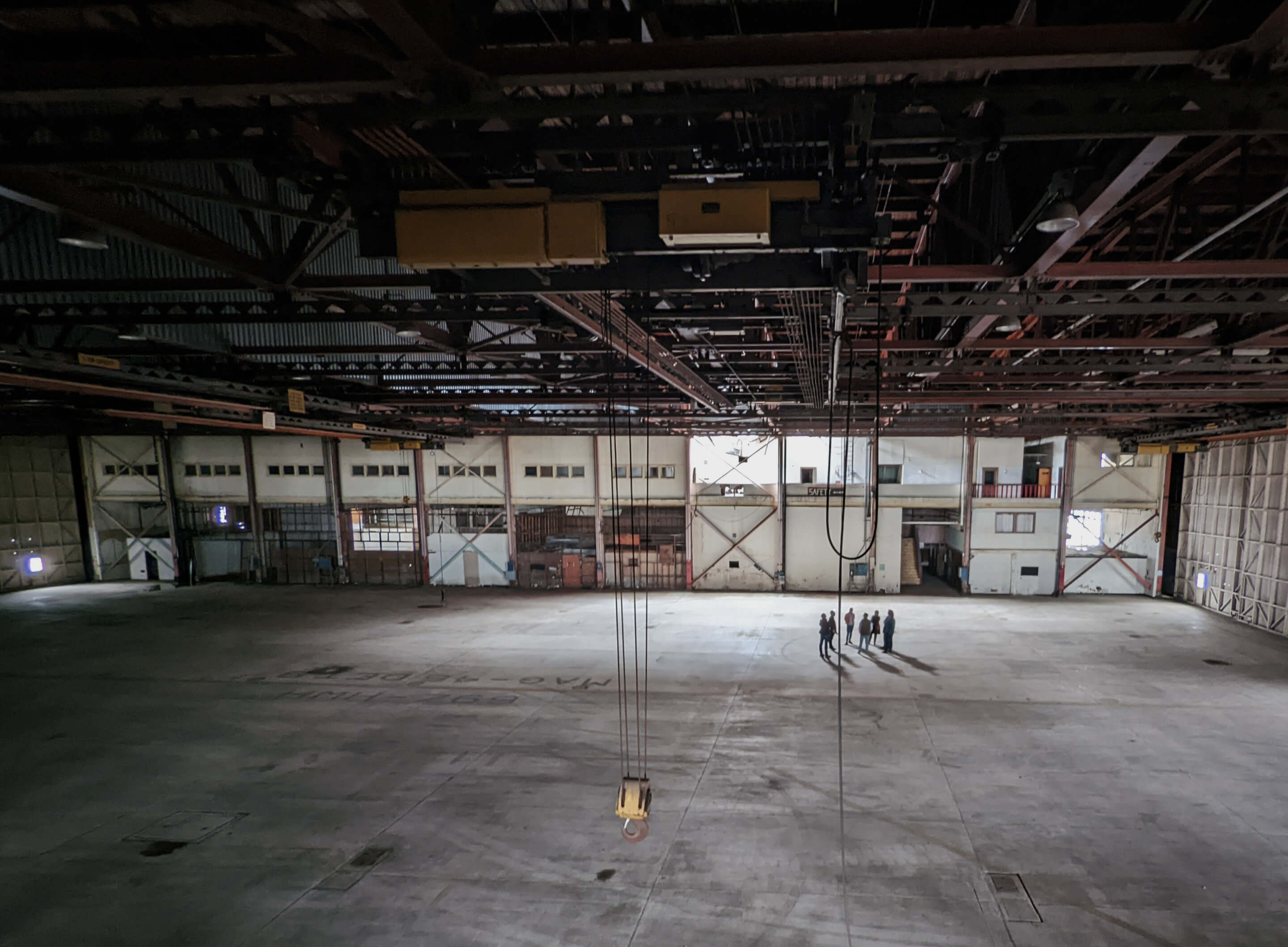
Envisioned as Southern California’s answer to Central Park, Great Park, when completed, will encompass a little under 30 percent of the footprint (about 1,300 acres) of the old Marine Corps Air Station El Toro; the rest of the land has been rezoned for commercial and residential development. Today, the multiphase project, designed to considerable acclaim by a team led by Ken Smith Workshop, has been criticized by some locals as not living up to expectations and being less of a cohesive park and more of a disparate assemblage of recreational facilities including a championship soccer stadium, major ice hockey facility, and sprawling sports complex. This is all anchored by a very large orange balloon, which was the first attraction at Great Park to open. Among other amenities and attractions are a carousel, buzzy arts center, great lawn, farmers’ market, and more.
To date, more than 450 acres of the park, which is owned by the City of Irvine and operated by the nonprofit Orange County Great Park Corporation, have opened for public use with the Cultural Terrace project adding a couple hundred more. Forthcoming is a 26-acre water park, set to potentially open as soon as this summer, and a highly anticipated botanical garden, which would potentially be located within the Great Terrace per reporting by the Daily Pilot.
“Really, when we think about the Great Park, it’s a big sports facility, which is great,” the Daily Pilot reported Irvine Vice Mayor Tammy Kim as saying during a City Council meeting held last September. “I know that there’s residents here and I know myself, really want to see the ‘park,’ in Great Park.”
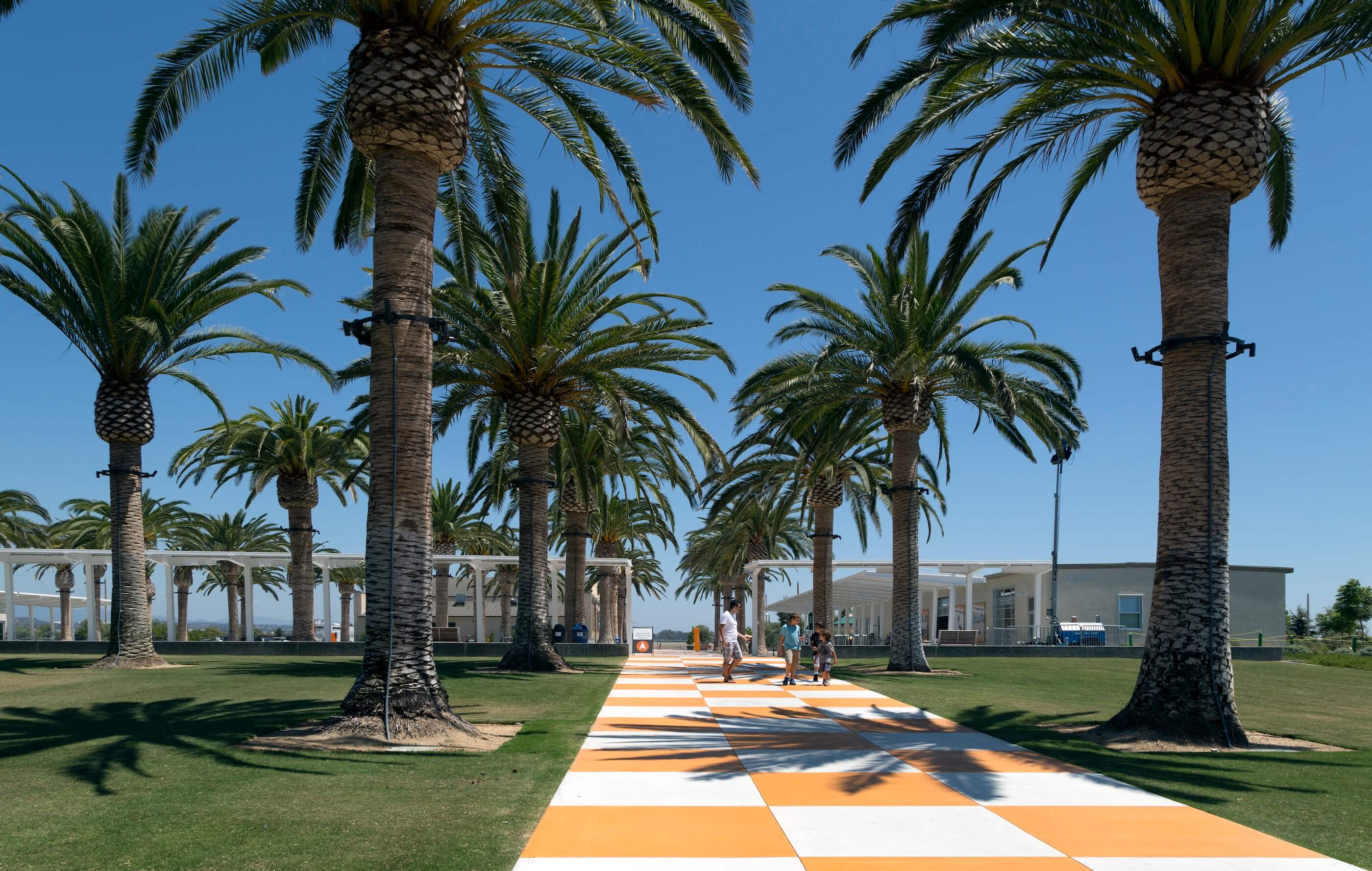
More on Great Park’s past troubles—and its newly calibrated path forward—can be found here.
Meanwhile, the Cultural Terrace design team is gearing up to work adaptive reuse magic on what’s slated to be a major new cultural destination for Orange County and beyond.
“We are very excited to work on one of the most important cultural projects in Southern California, especially on a project that adapts existing structures and sites, rather than building anew,” said MVRDV design partner Fokke Moerel. “The Cultural Terrace will demonstrate how a sustainable reuse approach can create one-of-a-kind cultural experiences.”








